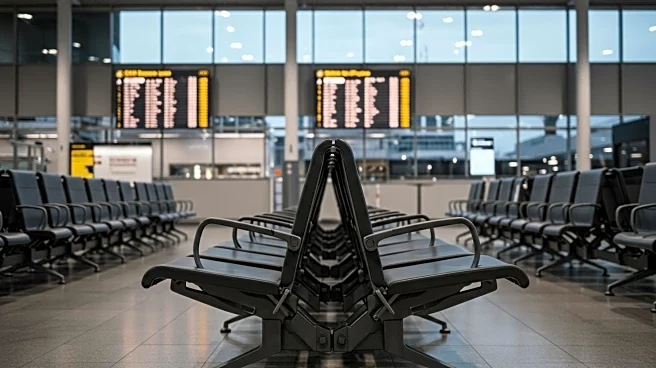What's Happening?
Air Canada is set to lock out its flight attendants following a strike vote, leading to significant travel disruptions. The airline plans to suspend operations starting Saturday, with cancellations beginning as early as August 14. The union, represented by the Canadian Union of Public Employees, issued a strike notice after nearly all members voted in favor of striking. The union is demanding 100% pay for all hours worked and cost of living adjustments, while Air Canada has offered a 38% compensation increase over four years. Despite eight months of negotiations, no agreement has been reached, prompting the airline to implement a contingency plan to wind down operations.
Why It's Important?
The lockout and subsequent flight cancellations will affect approximately 130,000 passengers daily, impacting travel between Canada and the U.S. at over 50 airports. This disruption highlights ongoing labor disputes in the airline industry, particularly concerning boarding pay and fair compensation. The situation underscores the challenges airlines face in balancing operational costs with employee demands, potentially influencing labor negotiations in other sectors. The Canadian government has intervened, with federal mediators available to assist in reaching a resolution, emphasizing the strike's significance on national transportation and economic stability.
What's Next?
Air Canada will continue to cancel flights until a resolution is reached, with the first cancellations expected on August 14. The Canadian government, through Minister Patty Hajdu, is closely monitoring the situation and encouraging both parties to negotiate. The outcome of these negotiations could set a precedent for future labor disputes in the airline industry. Stakeholders, including passengers and airport authorities, are likely to seek alternative arrangements, while the union and airline remain at the bargaining table.










